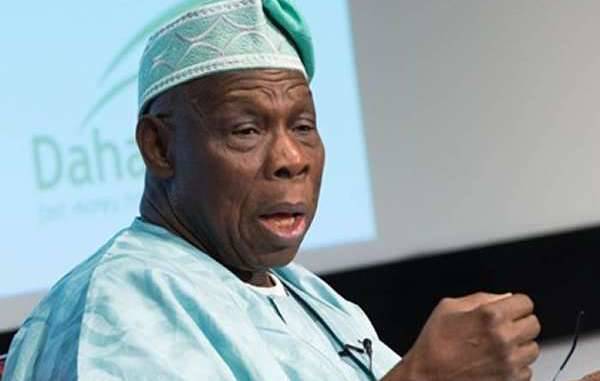Obasanjo unveils garment factory, harps on entrepreneurial skills
Former President, Chief Olusegun Obasanjo, has unveiled a garment factory, an initiative between him and a UK-based Nigerian, Abisade Adenubi. The factory, located inside the Olusegun Obasanjo Presidential Library (OOPL), Abeokuta, Ogun State, was established to boost the garment industry in the state, especially as it affects Adire, a local fabric traditional to the Egba […]

A former Nigerian President, Chief Olusegun Obasanjo.
Former President, Chief Olusegun Obasanjo, has unveiled a garment factory, an initiative between him and a UK-based Nigerian, Abisade Adenubi.
The factory, located inside the Olusegun Obasanjo Presidential Library (OOPL), Abeokuta, Ogun State, was established to boost the garment industry in the state, especially as it affects Adire, a local fabric traditional to the Egba people in Nigeria.
Unveiling the factory, christened ‘Heritage Apparels’, Obasanjo said Adenubi had taken his initiative to greater heights and urged other entrepreneurs to emulate her.
“After the initiative from me, the one who has taken it to the greatest height is this young woman, Abisade, and the credit for where we are should go to her.
“My advice for entrepreneurs is that they should learn from her and she will tell them the problems she encountered, including the problem from convincing me to have what we have here today,” Obasanjo said.
Adenubi, who is the Chief Executive Officer of the factory, told journalists that the company would focus on vocational training, textile production, garment making and tailoring generally.
“We are into garment and what we are going to be doing is to produce garment in high volumes and mass production. Our products will include apparels like uniform for schools, uniform for security businesses and uniform for public sector officials. I am also working with designers, as well for those who want to increase their capacity to retail.
“My firm belief is that we should not be exporting our economic development to other countries, and I think we have the responsibility to empower our local people. We are Nigerians and we should be Nigerians, even in spite of the economic reality.
“I have not taken over Adire, because it is a culture heritage for the people of Abeokuta. What we want to do is to see an evolution of processes and practices of how we make Adire. We are going to partner the real makers of Adire to achieve this evolution,” she said.
